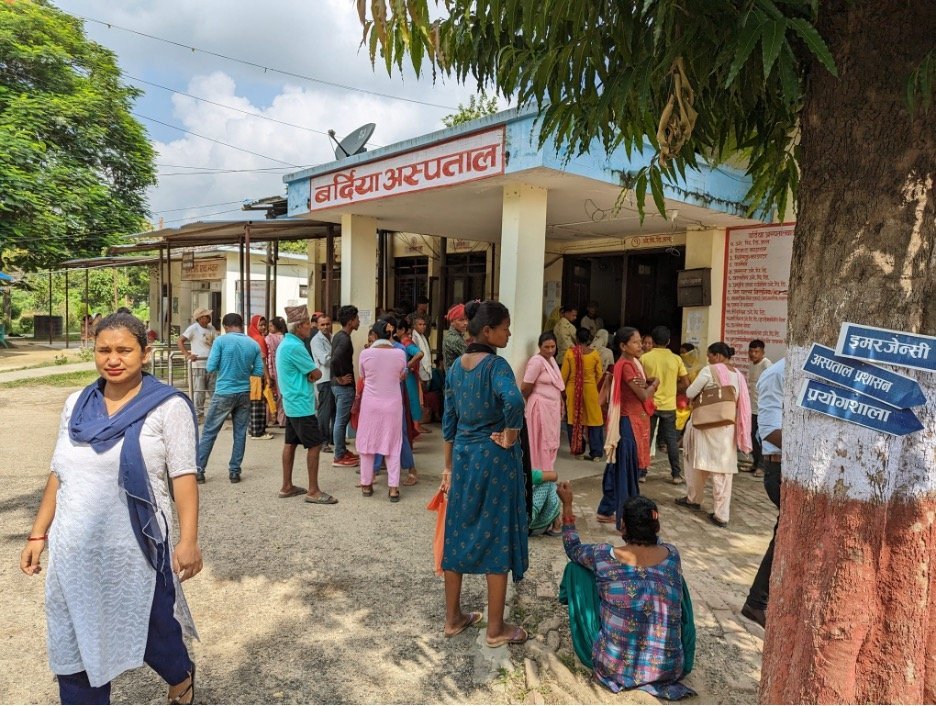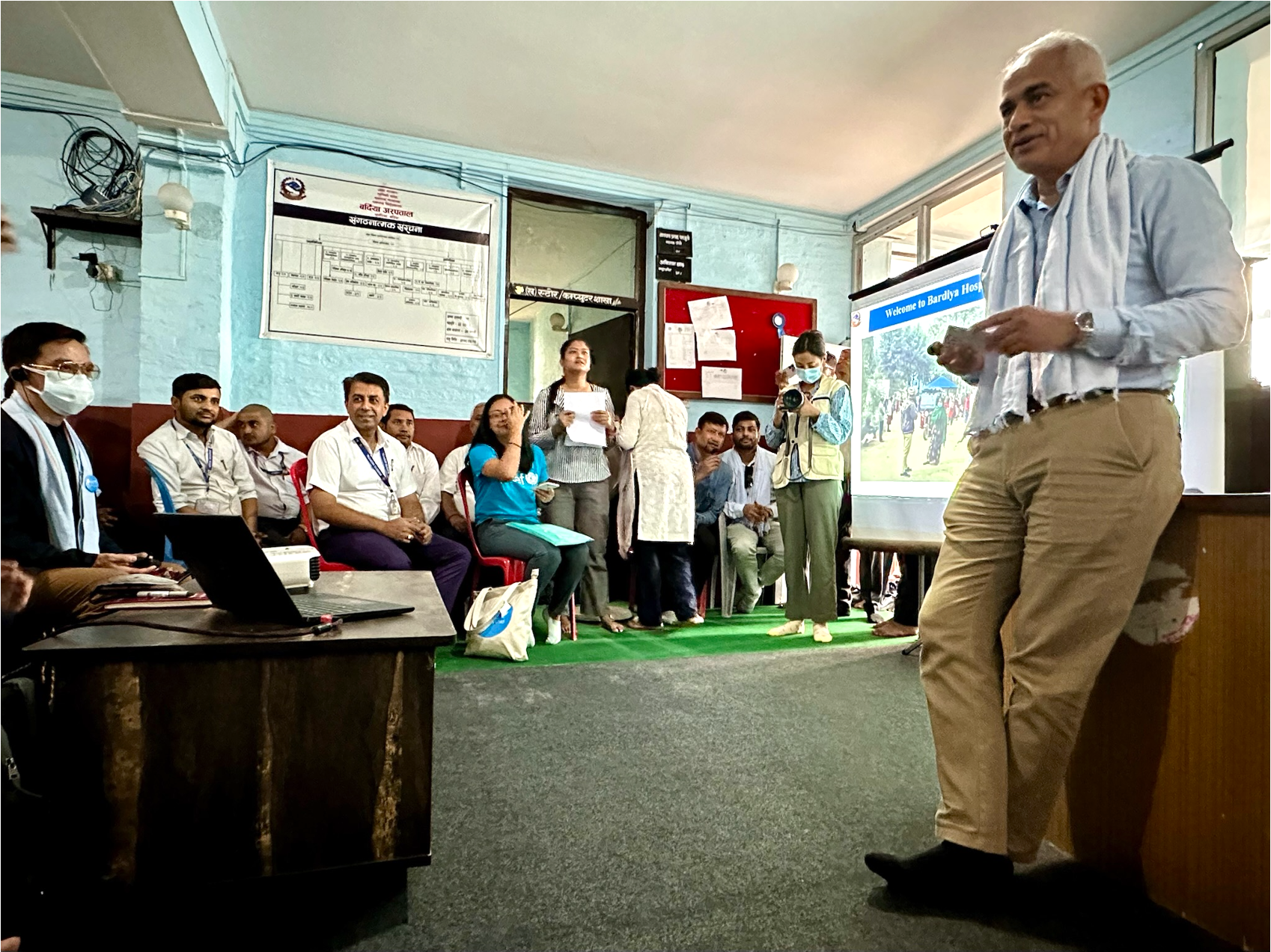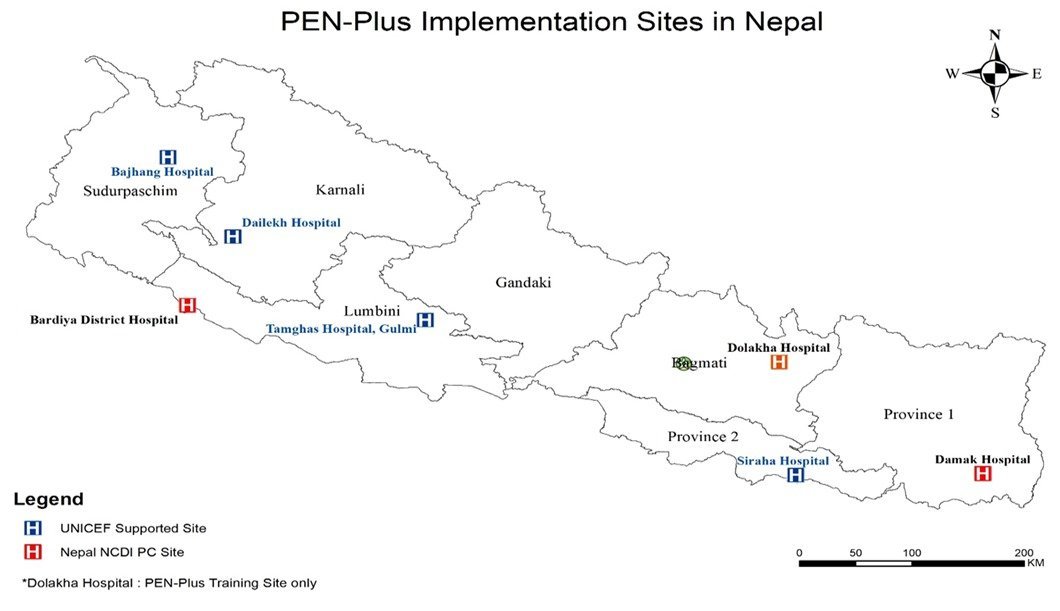Network Aligns with the Ministry of Health and PEN-Plus Partners in Nepal



A team of NCDI Poverty Network technical experts recently traveled to Nepal to align with partners following the Ministry of Health’s decision to expand PEN-Plus to four more district hospitals. The Network group spent the week collaborating with the Ministry of Health, UNICEF, and the Kathmandu Institute of Child Health (KIOCH) to understand how the success of PEN-Plus initiation in Nepal can be replicated nationally.
The group visited Bardiya Hospital in Lumbini province, one of the sites currently initiating the PEN-Plus program, and Dailekh Hospital in Karnali province, the site of a future PEN-Plus clinic.
Since the PEN-Plus clinics in Bardiya and Damak launched with backing from the Helmsley Charitable Trust, more than 5,000 people living with chronic noncommunicable conditions have received treatment in Nepal. With support from UNICEF, the Ministry of Health will expand the PEN-Plus program to Madhesh, Karnali, Sudurpaschim, and a second site in Lumbini province.
A highlight of the trip, said Dr. Neil Gupta, Network policy director, was meeting those living with severe noncommunicable diseases in Nepal who benefit from PEN-Plus, which provides diagnosis and chronic treatment services close to home.
“We met with children and their families who are affected by sickle cell disease and rheumatic heart disease,” Dr. Gupta said. “We met a 23-year-old living with type 1 diabetes who expressed appreciation for PEN-Plus services. Before PEN-Plus, he had to travel over the border to India to get his insulin. Now, he’s getting insulin in his hometown.”
In 2019, a study by the Nepal Health Research Council found that noncommunicable diseases account for 71 percent of deaths in Nepal. Dr. Bhagawan Koirala, KIOCH chair and co-chair of the Nepal NCDI Poverty Commission, is optimistic that PEN-Plus will reduce the NCD mortality rate in the next five to ten years.
“The case of PEN-Plus initiation and plans for scale-up in Nepal illustrates the power of partnership,” said Dr. Gupta. “The Ministry of Health is leading national and international partners in collaborating to develop and scale up a program that saves the lives of children and young adults.”
